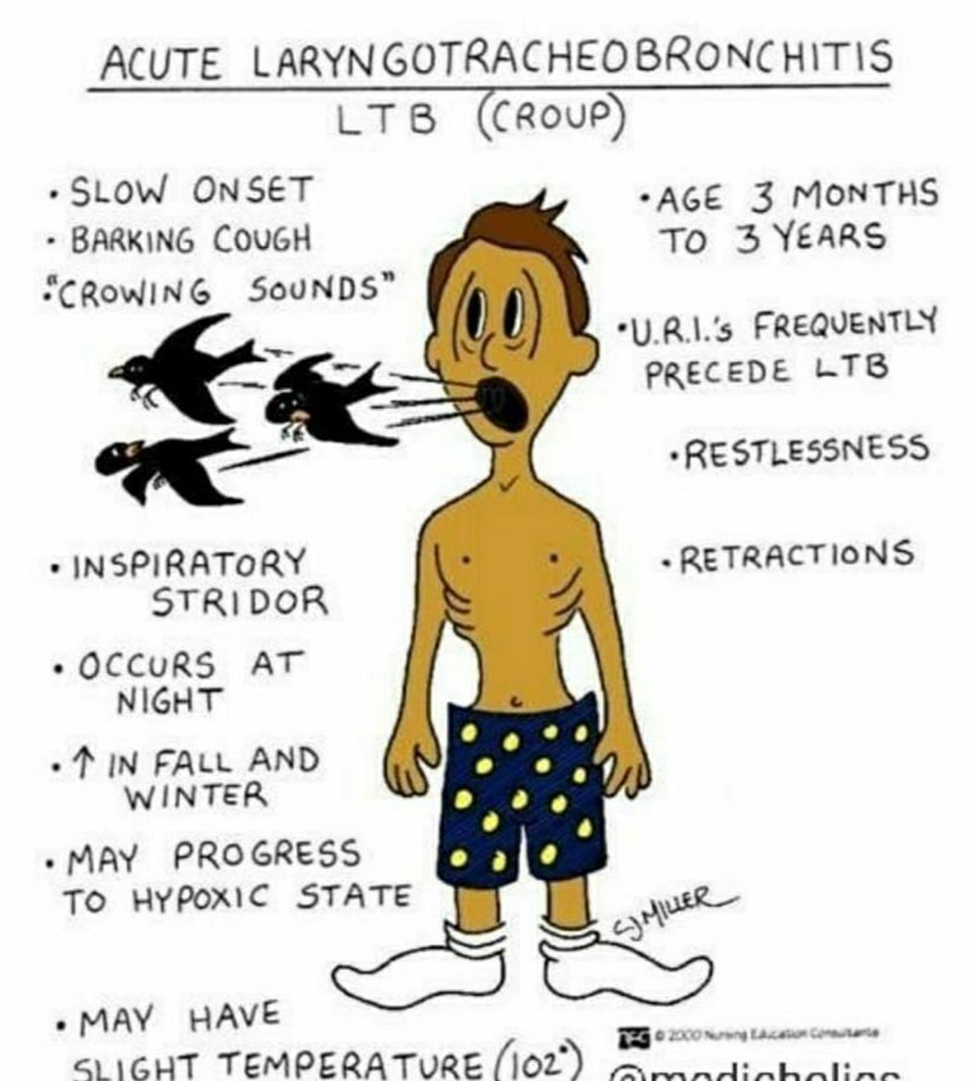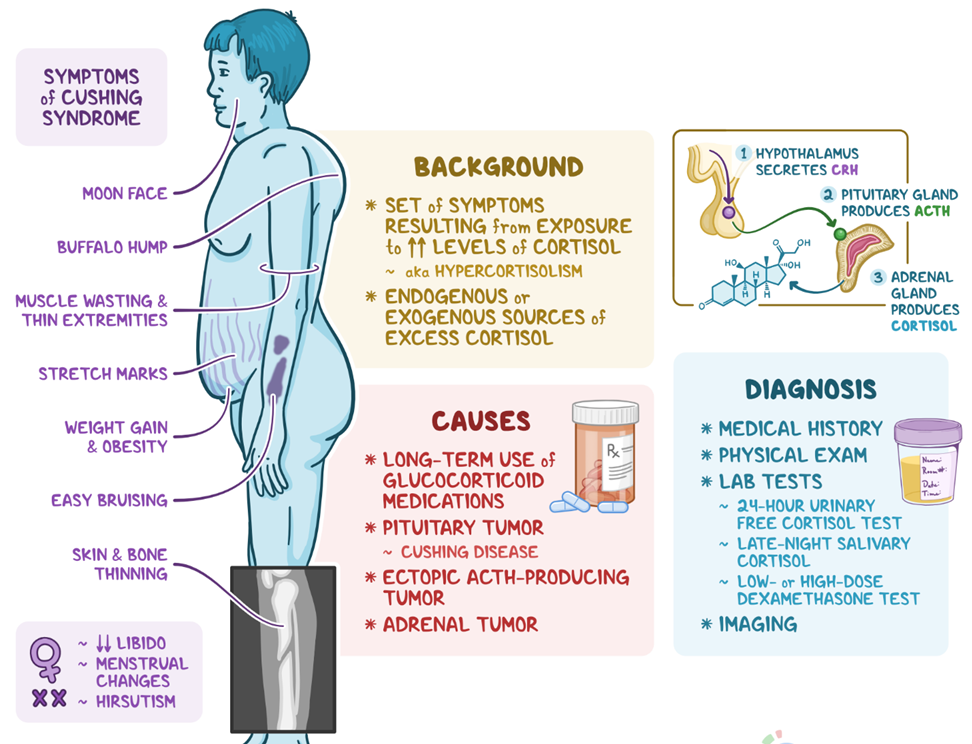The parent of a hospitalized 2-year-old child with viral laryngotracheobronchitis (croup) asks the nurse why the pediatrician did not prescribe antibiotics. Which response would the nurse make?
The child is too young to receive antibiotics
"Antibiotics are not indicated unless a bacterial infection is present.
The child may be allergic to antibiotics.
The child still has the maternal antibodies from birth and does not need antibiotics
The Correct Answer is B
A. The child is too young to receive antibiotics: This statement doesn't address the actual reason for not prescribing antibiotics for croup, which is primarily due to its viral nature.
B. "Antibiotics are not indicated unless a bacterial infection is present."
Explanation:
Viral laryngotracheobronchitis, commonly known as croup, is typically caused by a viral infection, most commonly by the parainfluenza virus. Antibiotics are not effective against viruses. Therefore, unless a bacterial infection is also present, prescribing antibiotics is not necessary or beneficial in treating croup.
C. The child may be allergic to antibiotics: While antibiotic allergies are a consideration, it doesn't explain why antibiotics are not prescribed for viral illnesses like croup.
D. The child still has the maternal antibodies from birth and does not need antibiotics: Maternal antibodies can offer some protection against infections, but the primary reason for not using antibiotics in viral infections like croup is because antibiotics are ineffective against viruses.

Nursing Test Bank
Naxlex Comprehensive Predictor Exams
Related Questions
Correct Answer is C
Explanation
A. That lethargy and vomiting are normal with mumps:
Incorrect: Lethargy and vomiting are not typical symptoms of mumps. These symptoms could indicate a separate issue that requires medical attention.
B. To continue to monitor the child:
Incorrect: Given the reported symptoms of lethargy and vomiting, a passive approach of continuing to monitor may delay necessary medical intervention. The child should be assessed promptly.
C. To bring the child to the clinic to be seen by the pediatrician:
Correct Answer: Lethargy and vomiting are not typical symptoms of uncomplicated mumps. These symptoms could be indicative of other issues, and it's important for the pediatrician to evaluate the child to determine the cause and provide appropriate care.
D. That there is nothing to be concerned about as long as there is no fever:
Incorrect: While fever is a common symptom of mumps, the absence of fever does not negate the need for further evaluation when there are concerning symptoms like lethargy and vomiting. The child should be seen by a healthcare provider to determine the cause of these symptoms.
Correct Answer is ["A","C","E"]
Explanation
A. "The manifestations are lessened by taking the prednisone every other day instead of daily."
Correct Answer: Cushingoid characteristics can be associated with long-term corticosteroid use. Taking prednisone every other day, rather than daily, can help minimize these manifestations while still providing the needed therapeutic effect.
B. "You need to be sure to talk to the doctor about the Cushingoid characteristics."
Incorrect: While it is important for the parents to communicate with the doctor, this statement is less therapeutic than option 3, which opens up a more collaborative and supportive conversation.
C. "Which manifestations of this condition do you find most troublesome?"
Correct Answer: This open-ended question allows the parents to express their concerns and frustrations. It facilitates communication between the parents and healthcare provider to address specific issues they find most troublesome.
D. "I am sure it will be all right; they hardly look unusual."
Incorrect: Downplaying the parents' concerns may not be the most therapeutic approach. Acknowledging their concerns and providing information about the reversible nature of cushingoid characteristics would be more helpful.
E. "The cushingoid appearance will gradually disappear once the corticosteroids are tapered and discontinued."
Correct Answer: Cushingoid characteristics are reversible, and they tend to improve as the dose of corticosteroids is tapered and eventually discontinued.

Whether you are a student looking to ace your exams or a practicing nurse seeking to enhance your expertise , our nursing education contents will empower you with the confidence and competence to make a difference in the lives of patients and become a respected leader in the healthcare field.
Visit Naxlex, invest in your future and unlock endless possibilities with our unparalleled nursing education contents today
Report Wrong Answer on the Current Question
Do you disagree with the answer? If yes, what is your expected answer? Explain.
Kindly be descriptive with the issue you are facing.
